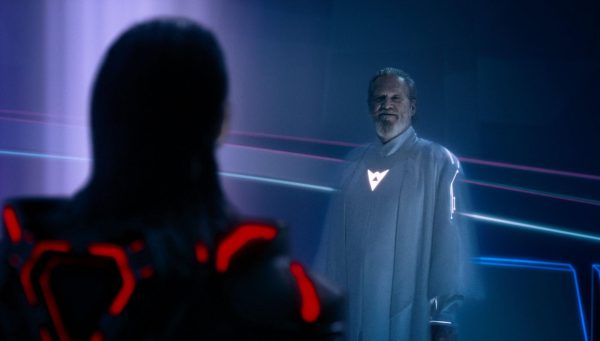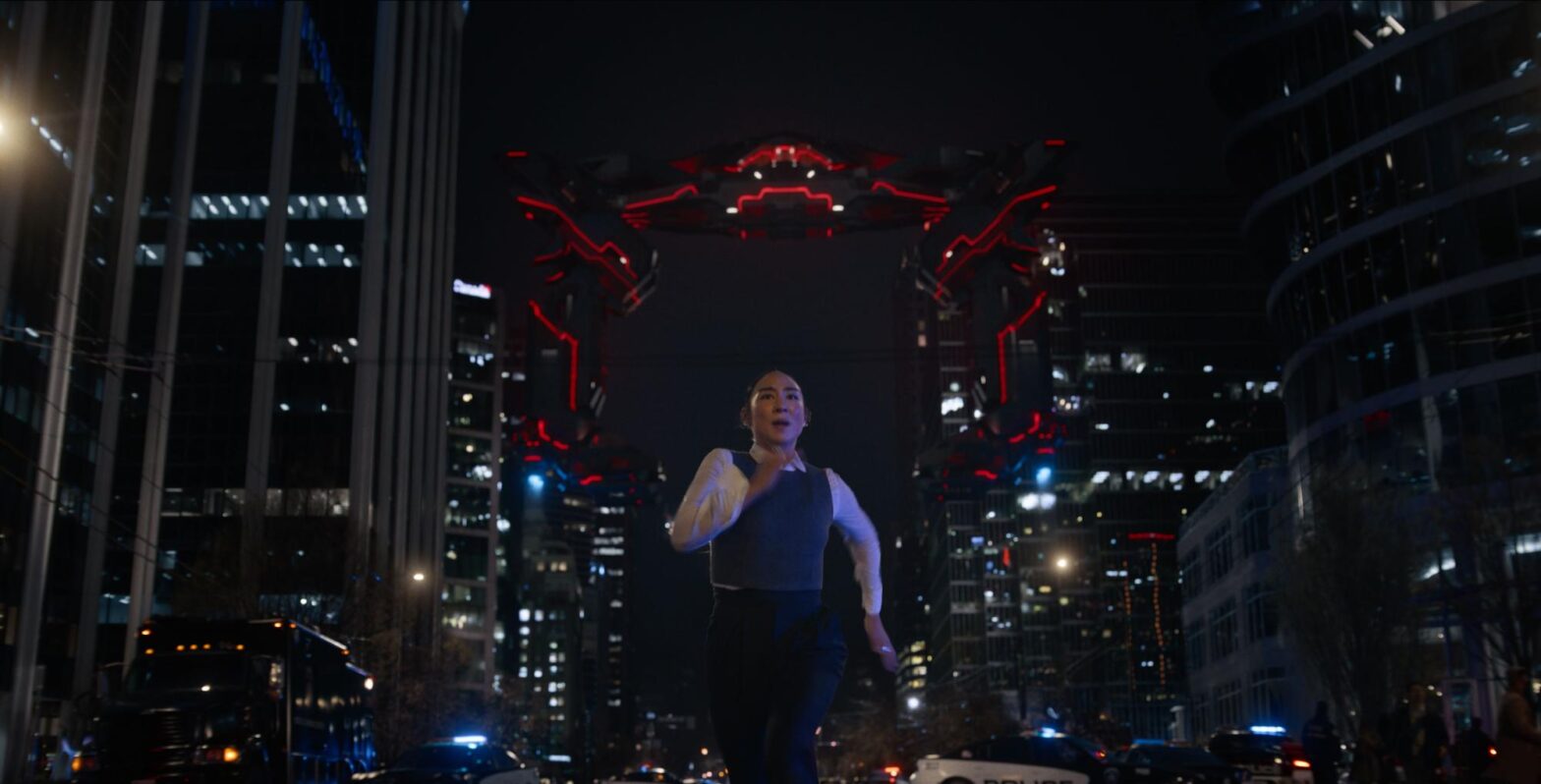After a 15-year hiatus in the once technologically revolutionary Tron series, the third installment, Tron: Ares, marks a return to the digital frontiers of the Tron universe, but is not as innovative or astounding as its predecessors.
The story follows Jared Leto's character Ares, a computer program created by Julian Dillinger, the grandson of “Tron's” antagonist Edward Dillinger, who hunts down the “permanence code” that would allow him to live in the real world. The MacGuffin in the film, while incredibly vague, leads to Ares crossing paths with Greta Lee's character Eve, who is trying to keep the code out of the Dillingers' hands. Ares and Eve must then work together to stop Julian from bringing an army of programs from the Net into the real world.
“Tron: Ares” simply lacks the flair, vision, direction, visual identity and technological nuances that “Tron” and “Tron: Legacy” possess. The aesthetic of Tron: Ares, which has been the franchise's main attraction since 1982, shows no originality or evolution from the art style of the previous two. Director Joachim Rønning shows no sense of boldness in his direction and does nothing to refresh or differentiate his film compared to the clean direction of Steven Lisberger in Tron or Joseph Kosinski in Tron: Legacy.
Vehicle and costume designs are virtually the same as those in Tron: Legacy and the animated film Tron: Uprising. Nothing in Tron: Ares looks or feels original. When you look at the sets of Tron: Legacy, they are large, practical sets with incredibly detailed lighting, packed with stunning stage pieces. You can feel how the world is presented.
The sets of “Tron: Ares” mostly only consist of the nighttime streets of Toronto, technical offices, an empty gray hangar or the odd CGI-backed individual room in the grid, all of which leave a feeling of nothingness.
The apparent lack of creative direction in Tron: Ares is incredibly disappointing, considering how Tron and Tron: Legacy set memorable reference points with their visual identities. Lisberger's work as an animator and Kosinski's work as an architect flow into the images and designs of their respective films and complement each other over the decades.
“Tron” is dripping with intricate lights and hard lines that blend into every fabric of its digital world. This was completely redefined and reinterpreted in Tron: Legacy, but retained the core of what made Tron so visually stunning. The artists of both films put so much character and care into the look of Tron, while Tron: Ares brings nothing new and even dulls the impact of what came before.

One of the main reasons “Tron: Ares” fails to captivate audiences is that it blurs the line between the real world and the digital world rather than engaging in the intrigue of the grid. “Tron: Ares” spends so much time showcasing the technology and programs of the power grid in our world, but it doesn’t understand why the first two “Tron” films were so memorable.
The majority of the running time of the first two films takes place within the grid, with its huge arenas and digital hubs. Your characters explore numerous places that have their own identities and lives for them. It all feels special because it is so different from our world.
“Tron: Ares” never commits to depicting the digital world, but will occasionally show you the ribbons of a light wheel or staff to keep you entertained. Unfortunately, Rønning doesn't understand that audiences want to truly experience the digital world and not be teased with sporadic, four-minute glimpses of the web.
This film's score also fails to transport the audience into the world of the grid like Wendy Carlos and Daft Punk's scores for Tron and Tron: Legacy did, respectively. Nine Inch Nails fail to separate their signature industrial electronic sound from this project, and the score makes the scenes feel sonically broken. However, Carlos and Daft Punk's scores are brilliant examples of music that builds the world of the Grid, and both feel like they actually exist in the world of “Tron.”
Another fatal flaw of Tron: Ares is that its characters have no depth or real storylines, and don't even serve as conduits for the audience to experience their respective worlds. Everyone in this film is either a tech genius, a ruthless AI killer, or a cunning CEO. Oddly enough, despite Ares's superhuman intellect and physical prowess, he feels like he's the most relatable because he's the only one who questions what's happening around him.
However, Leto's performance is just boring. Ares, a program, spends the entire film looking confused and speaking in a monotone, as if Leto and Rønning assumed that because Ares is a computer program, he should behave like a robot. This is a clear contrast to previous franchise appearances by Bruce Boxleitner, Dan Shor and Michael Sheen, who all played programs but delivered performances that embodied real soul and character.
Unfortunately, Lee, Evan Peters and Gillian Anderson have very little work options in the film. Their characters represent the human world of this film, but the characterizations in the script are so superficial, predictable and uninteresting that it wastes the talent of the actors. Unfortunately, not many talented actors could save this film's predictable and weightless story, which attempts to ask the question: “What is the meaning of life?” And if the meaning of life is watching Disney constantly waste art in its franchises, sequels, and reboots, then it's not a life worth living.
“Tron: Ares” fails to live up to the legacy of its predecessors in both world building and technological innovation. “Tron” pioneered computer-generated graphics in film, while “Tron: Legacy” introduced technology used to reduce the age of actors. As scary as they may be, both were milestones in technological development. However, “Tron: Ares” is nothing new and doesn’t push any boundaries. Instead, it disappoints those who waited 15 years to see where this franchise would go.
